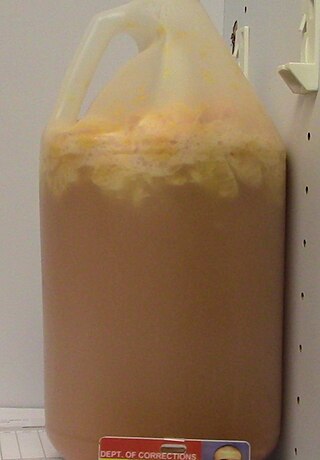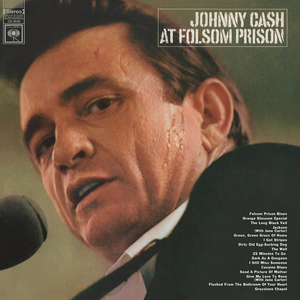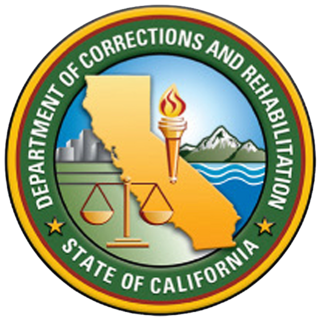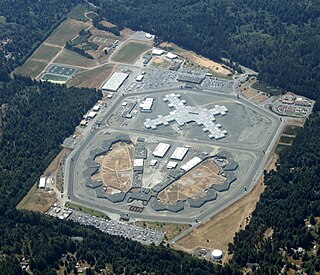Related Research Articles

The Attica Prison Riot, also known as the Attica Prison Rebellion, the Attica Uprising, or the Attica Prison Massacre, took place at the state prison in Attica, New York; it started on September 9, 1971, and ended on September 13 with the highest number of fatalities in the history of United States prison uprisings. Of the 43 men who died, all but one guard and three inmates were killed by law enforcement gunfire when the state retook control of the prison on the final day of the uprising. The Attica Uprising has been described as a historic event in the prisoners' rights movement.

Folsom California State Prison is a California State Prison in Folsom, California, U.S., approximately 20 miles (32 km) northeast of the state capital of Sacramento. It is one of 34 adult institutions operated by the California Department of Corrections and Rehabilitation.

In the U.S. state of California, capital punishment is not allowed to be carried out as of March 2019, because executions were halted by an official moratorium ordered by Governor Gavin Newsom. Before the moratorium, executions had been frozen by a federal court order since 2006, and the litigation resulting in the court order has been on hold since the promulgation of the moratorium. Thus, there will be a court-ordered moratorium on executions after the termination of Newsom's moratorium if capital punishment remains a legal penalty in California by then.

Pruno, also known as prison hooch or prison wine, is a term used in the United States to describe an improvised alcoholic beverage. It is variously made from apples, oranges, fruit cocktail, fruit juices, hard candy, sugar, high fructose syrup, and possibly other ingredients, including crumbled bread. Bread is incorrectly thought to contain yeast for the pruno to ferment. Pruno originated in US prisons, where it can be produced with the limited selection of equipment and ingredients available to inmates. It can be made using only a plastic bag, hot running water, and a towel or sock to conceal the pulp during fermentation. The end result has been colorfully described as a "bile-flavored wine cooler". Depending on the time spent fermenting, the sugar content, and the quality of the ingredients and preparation, pruno's alcohol content by volume can range from as low as 2% to as high as 14%.

Johnny Cash at Folsom Prison is the first live album by American singer-songwriter Johnny Cash, released on Columbia Records on May 6, 1968. After his 1955 song "Folsom Prison Blues", Cash had been interested in recording a performance at a prison. His idea was put on hold until 1967, when personnel changes at Columbia Records put Bob Johnston in charge of producing Cash's material. Cash had recently controlled his drug abuse problems, and was looking to turn his career around after several years of limited commercial success. Backed by June Carter, Carl Perkins, and the Tennessee Three, Cash performed two shows at Folsom State Prison in California on January 13, 1968. The initial release of the album consists of fifteen songs from the first show and two from the second.

Inside the Walls of Folsom Prison is a 1951 American film noir crime film directed by Crane Wilbur and starring Steve Cochran and David Brian. Set in Folsom State Prison in California, the film was seen both in the United States and Europe.

The California Department of Corrections and Rehabilitation (CDCR) is the penal law enforcement agency of the government of California responsible for the operation of the California state prison and parole systems. Its headquarters are in Sacramento.
Billy Ray Hamilton was an American convicted murderer who conspired with Clarence Ray Allen to murder eight witnesses to a crime committed by Allen in 1974. Hamilton met Allen in Folsom Prison in 1979. Allen befriended Hamilton and allegedly offered to pay him $25,000 to carry out the murders. At Folsom Prison, Allen used to refer to Hamilton as his "good dog", though at the time of Allen's trial, he claimed to only have met Hamilton three or four times.

Deuel Vocational Institution (DVI) was a state prison located in unincorporated San Joaquin County, California, near Tracy. The prison closed on September 30, 2021.
A prison strike is an inmate strike or work stoppage that occurs inside a prison, generally to protest poor conditions or low wages for penal labor. Prison strikes may also include hunger strikes.

James Aloysius Johnston was an American politician and prison warden who served as the first and longest-serving warden of Alcatraz Federal Penitentiary, serving from 1934 to 1948. He had earlier served as wardens of California state prisons at Folsom (1912-1913) and San Quentin (1914-1924).

California Correctional Center (CCC) was a state prison in the city of Susanville in Northern California. It was a minimum-security facility.

California State Prison, Sacramento (SAC) is a male-only state prison located in the city of Folsom, in Sacramento County, California. The facility is also referenced as Sacramento State Prison, CSP-Sacramento, CSP-SAC, and occasionally, New Folsom or New Folsom Prison which was its official name prior to October 1992.
The San Quentin Six were six inmates at San Quentin State Prison in the U.S. state of California who were charged with actions related to an August 21, 1971 escape attempt that resulted in six deaths and at least two people seriously wounded. The San Quentin Six were Fleeta Drumgo, David Johnson, Hugo Pinell, Johnny Larry Spain, Willie Tate, and Luis Talamantez. The dead included George Jackson, a co-founder of the Black Guerrilla Family; two other inmates, and three guards.
Correctional Training Facility (CTF), commonly referenced as Soledad State Prison, is a state prison located on U.S. Route 101, 5 miles (8.0 km) north of Soledad, California, adjacent to Salinas Valley State Prison.
Kumi African Nation Organization, generally referred to as 415 or Kumi 415 is a predominantly African-American prison gang that was originally formed in Folsom State Prison in the mid-1980s, and the founding members were mainly from the San Francisco Bay Area.
The Marin County Civic Center attacks were two related attacks in 1970 at the Marin County Civic Center courtroom in San Rafael, California, United States, tied to escalating racial tensions in the state's criminal justice system.

The 2013 California prisoner hunger strike started on July 8, 2013, involving over 29,000 inmates in protest of the state's use of solitary confinement practices and ended on September 5, 2013. The hunger strike was organized by inmates in long term solitary in the Security Housing Unit (SHU) at Pelican Bay State Prison in protest of inmates housed there that were in solitary confinement indefinitely for having ties to gangs. Another hunger strike that added to the movement started the week before in High Desert State Prison. The focus of the High Desert State Prison hunger strike was to demand cleaner facilities, better food and better access to the library.

In the United States, penal labor is a multi-billion-dollar industry. Annually, incarcerated workers provide at least $9 billion in services to the prison system and produce more than $2 billion in goods. The industry underwent many transitions throughout the late 19th and early and mid 20th centuries. Legislation such as the Hawes-Cooper Act of 1929 placed limitations on the trade of prison-made goods. Federal establishment of the Federal Prison Industries (FPI) in 1934 revitalized the prison labor system following the Great Depression. Increases in prison labor participation began in 1979 with the formation of the Prison Industry Enhancement Certification Program (PIECP). The PIECP is a federal program first authorized under the Justice System Improvement Act of 1979. Approved by Congress in 1990 for indefinite continuation, the program legalizes the transportation of prison-made goods across state lines and allows prison inmates to earn market wages in private sector jobs that can go towards tax deductions, victim compensation, family support, and room and board.
The 2018 U.S. prison strike was a series of work stoppages and hunger strikes in prisons across the United States from August 21 to September 9, 2018. It was one of the largest prison strikes in US history. Striking workers demanded improved living conditions, an end to free prison labor, and other prison reforms. The strike was conducted at least partly in response to the April 2018 prison riot at Lee Correctional Institution, which killed seven inmates and was the deadliest US prison riot of the past 25 years.
References
- ↑ Cummins, Eric (1994). The Rise and Fall of California's Radical Prison Movement. Stanford University Press. pp. 199–201. ISBN 978-0-8047-2232-2.
- ↑ "Folsom Manifesto for the California Statewide Prison Strike, 1970". San Francisco Bay View. 26 October 2018.